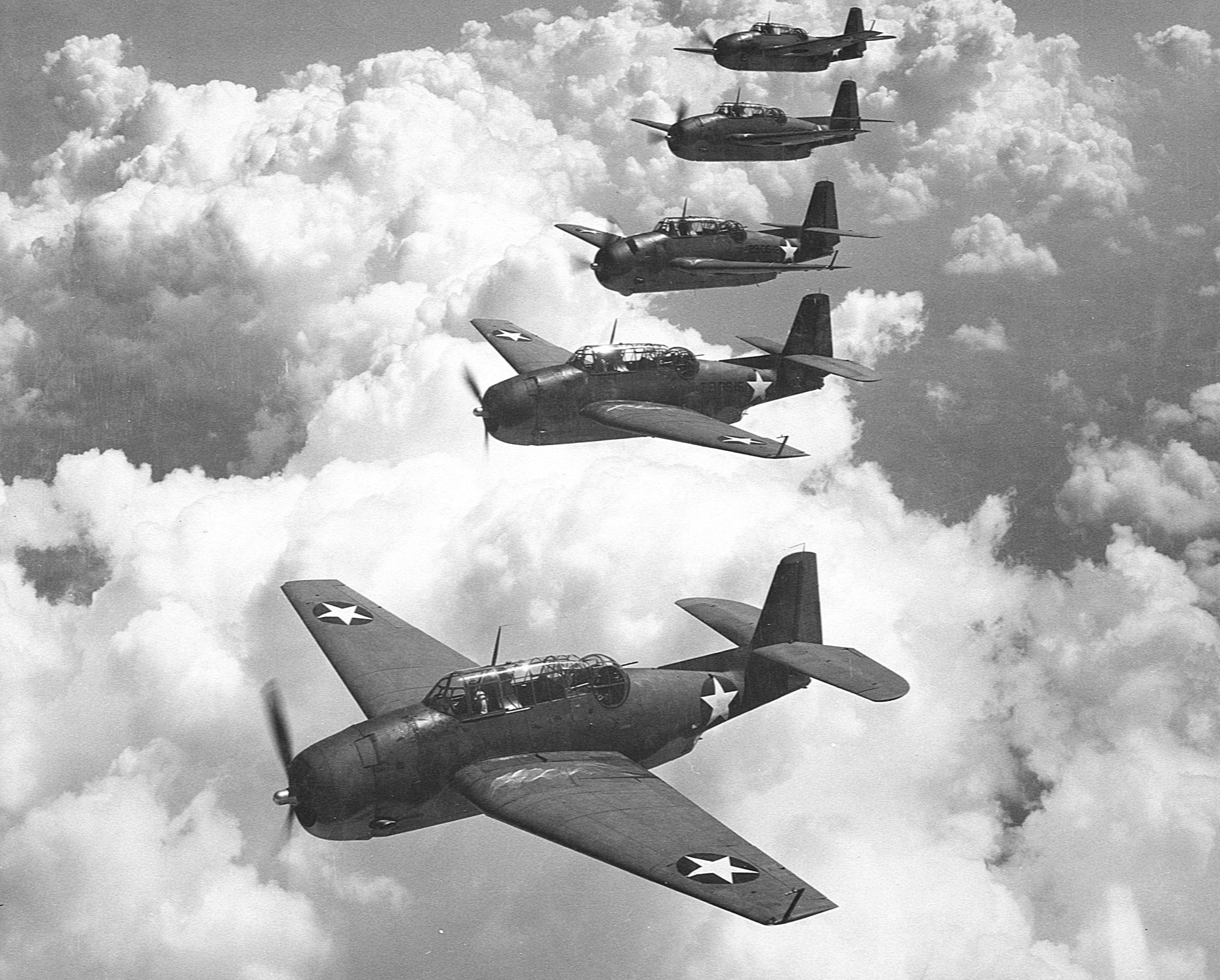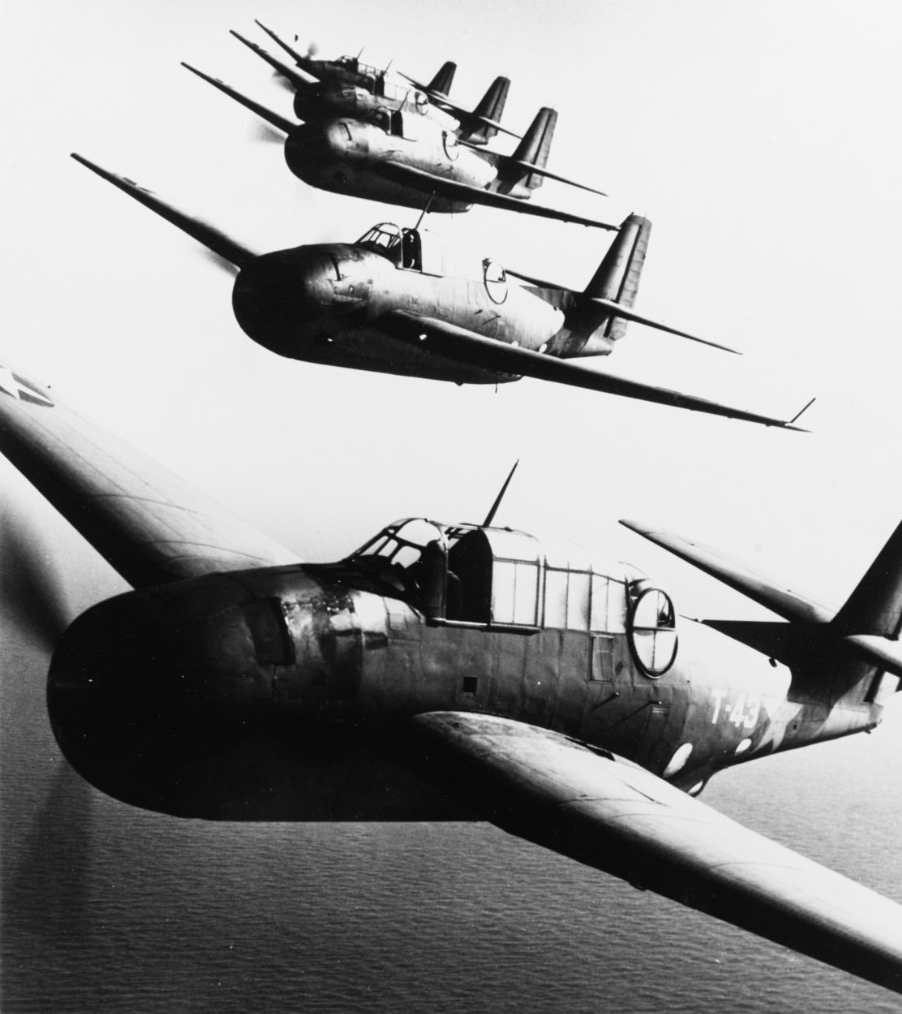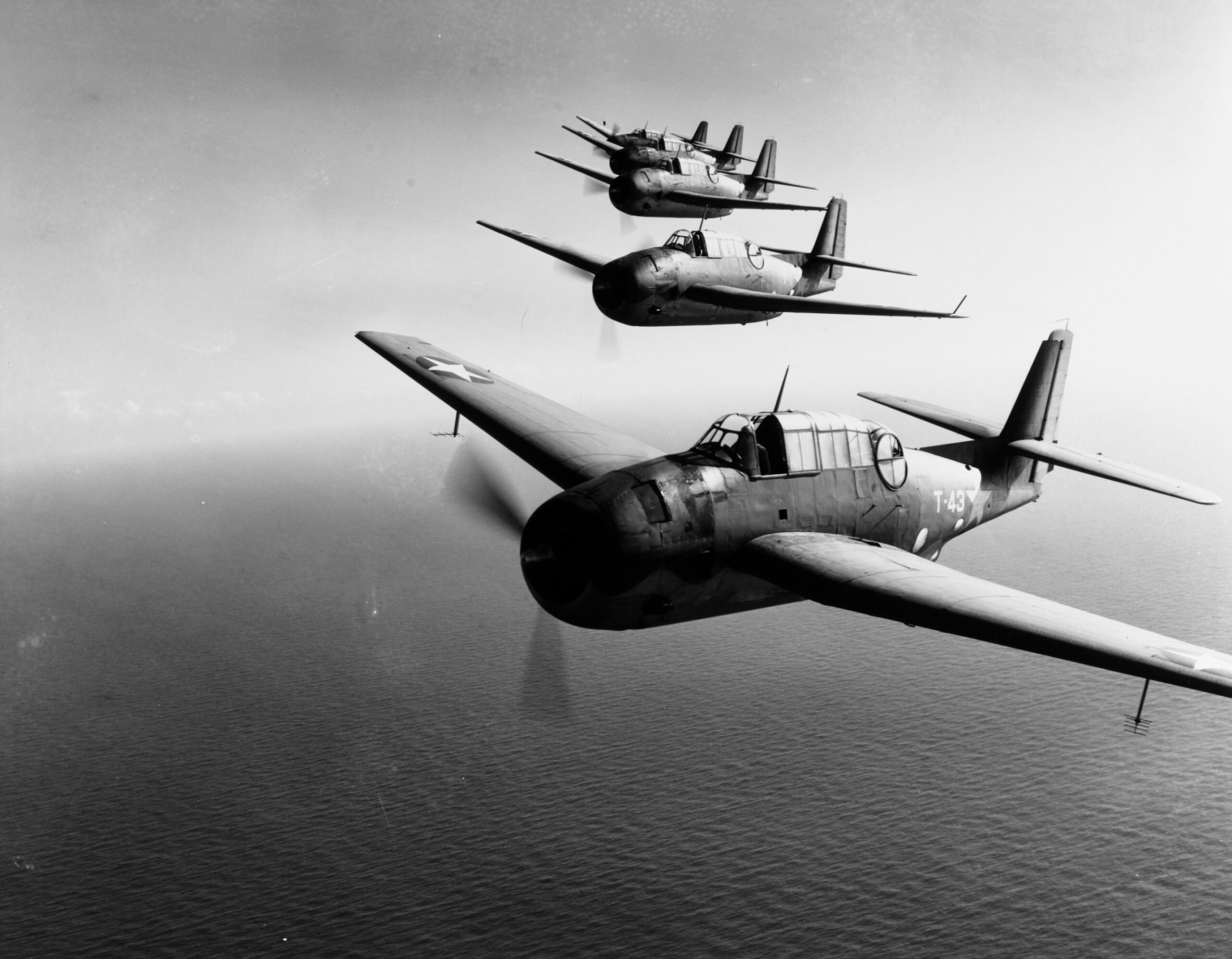On a crisp December afternoon in 1945, five U.S. Navy TBM Avenger torpedo bombers prepared for what seemed like a routine training mission. The squadron, known as Flight 19, took off from Naval Air Station Fort Lauderdale, Florida, unaware they were about to become one of the most legendary mysteries in aviation history. These five aircraft, each carrying five men, represented the pinnacle of naval aviation training during the post-World War II era.

TBM Avengers similar to those of Flight 19 in formation. Credit: Wikipedia
The mission was straightforward: a practice bombing run over the vast, unpredictable waters of the Atlantic Ocean. Lieutenant Charles Taylor, an experienced naval aviator, led the group of young, skilled pilots through what should have been a standard navigational exercise. Little did they know that this seemingly ordinary training flight would soon spiral into an inexplicable disappearance that would captivate the world for decades.
As the mission progressed, subtle signs of trouble began to emerge. Lieutenant Taylor’s first radio transmissions suggested growing confusion about their exact location. The pilots reported their compasses were acting strangely, and visibility was deteriorating rapidly. Navigational uncertainty crept into their communications, with increasing panic evident in their voices.

Historical photo from the Flight 19 era. Credit: Naval History and Heritage Command
The radio communications became increasingly fragmented and desperate. Pilots reported running low on fuel and being unsure of their direction. Ground control attempted to provide guidance, but the confusion only seemed to intensify. In a haunting series of transmissions, the pilots discussed the possibility of having to ditch their aircraft in the ocean if they couldn’t find their way back.

Naval aviation training during the WWII era. Credit: U.S. Naval Institute
Immediately after losing contact, the U.S. Navy launched an extensive search and rescue operation. Multiple aircraft, including a PBM Mariner flying boat, were dispatched to search the vast ocean area where Flight 19 was last known to be. Tragically, the PBM Mariner itself disappeared during the search, adding another layer of mystery to the unfolding drama.
The disappearance of Flight 19 became a cornerstone of the emerging Bermuda Triangle mythology. While scientific explanations point to navigational errors, equipment malfunction, and severe weather, the incident captured public imagination as a supernatural phenomenon. The story of 14 experienced naval aviators vanishing without a trace seemed to defy logical explanation.
The legacy of Flight 19 extends far beyond the immediate tragedy. It represents a pivotal moment in aviation history, where human skill, technological limitations, and environmental challenges converged in a perfect storm of mystery. The lost patrol continues to fascinate researchers, aviation enthusiasts, and the general public, serving as a compelling narrative of human vulnerability and the enduring allure of unsolved mysteries.
References:
– Naval History and Heritage Command
– U.S. Naval Institute
– Wikipedia – Flight 19
– HistoryNet
References:
Naval History and Heritage Command – Flight 19 – link
U.S. Naval Institute – The Mysterious Disappearance of Flight 19 – link
Wikipedia – Flight 19 – link
HistoryNet – Five TBM Avenger Bombers Lost in the Bermuda Triangle – link
Categories: Aviation Mysteries, Historical Events, Military History, Naval Aviation, Unexplained Phenomena, Unsolved Mysteries
Tags: aviation history, Bermuda Triangle, Flight 19, historical mystery, maritime disappearance, Military Mystery, Missing Aircraft, Naval Aviation, naval history, World War II
Religion: None
Country of Origin: United States
Topic: Aviation Mystery
Ethnicity: Multiple

